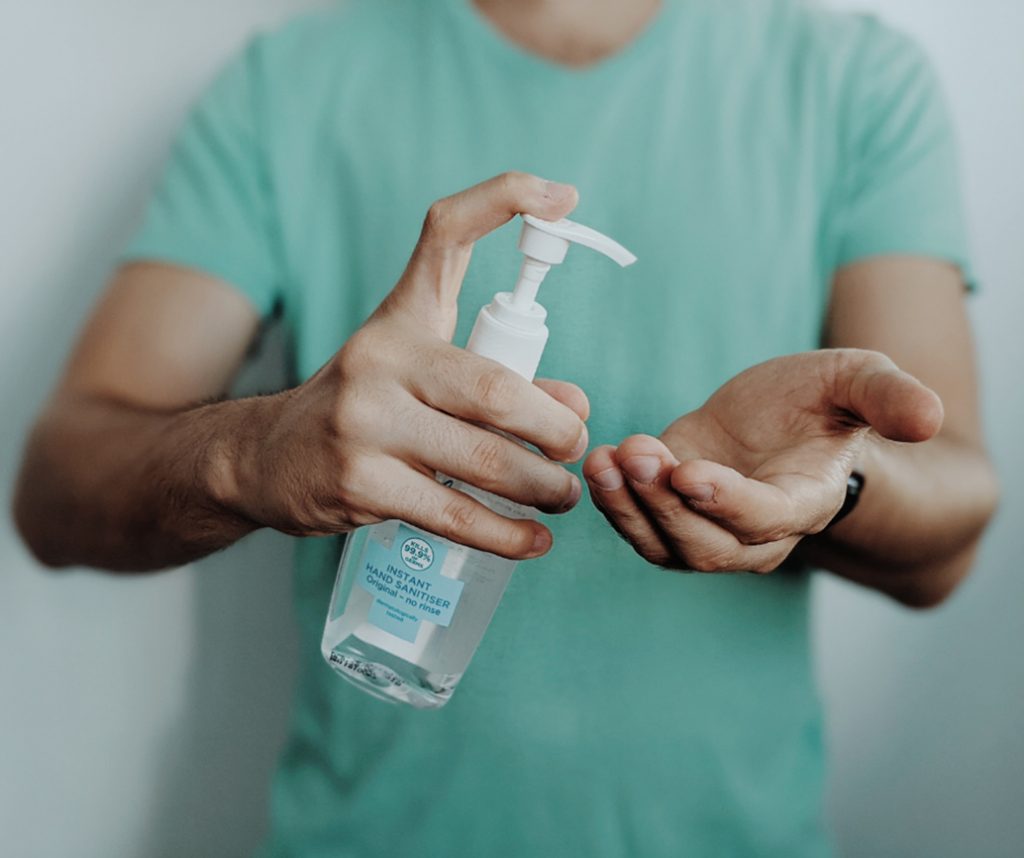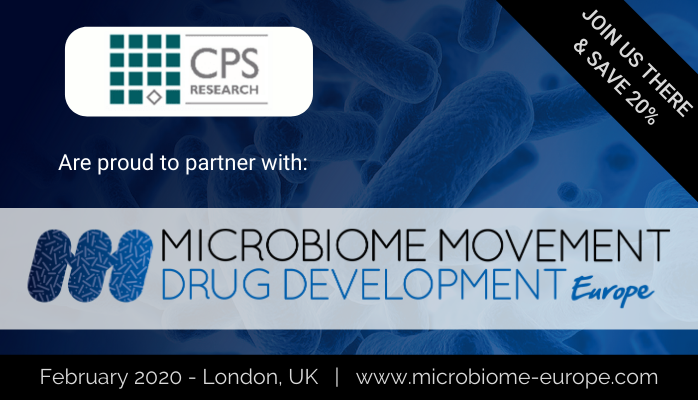COVID Update
Following the latest updates from the Scottish Government, which you can view here, we at CPS Research would like to take this time to reassure you that it is, and will continue to be, business as usual for us. As they relate to important health research and development, clinical trials are deemed as essential work and we will always prioritise your healthcare and your safety during this time.
The health and safety of our patients and members of staff has always been our most important priority throughout the COVID-19 crisis and we will continue to do everything we possibly can to keep our patients and our staff safe.
Participation in clinical trials is essential to helping shape the future of healthcare. As part of your Patient Information pack, you will receive a travel authorisation letter that states that you are participating in an essential clinical trial. All of our patients should carry this letter with them when travelling to and from their appointments with CPS Research.

Covid Protocols
We will be continuing with our staggered appointment times to ensure our patients do not spend any time in our waiting room and can instead proceed directly to their designated clinical room.
We always have stringent health and hygiene measures in place at our facility and we increased those measures following a thorough and detailed COVID-19 risk assessment earlier this year. We will continue to monitor our procedures in line with the most up-to-date guidance and will continue to maintain the highest possible health and safety standards.
Temperature Checks
Everyone is required to have a temperature check as they enter the clinic. If you are travelling by car, please wait in your car and phone 0141 946 7888. If not, simply press the CPS Research buzzer to notify us that you have arrived. One of our team will then meet you at the door or in your car to check your temperature before escorting you to your designated clinical room for your appointment.
Hand Sanitising
Multiple hand sanitisation stations are located throughout the clinic. Keeping your hands clean is one of the simplest and most effective ways of keeping yourself and others safe and preventing the spread of germs. That’s why we have hand sanitising stations conveniently located throughout our clinic. Our staff also follow a rigorous hand cleaning schedule.

PPE – Personal Protective Equipment
All of our staff will be equipped with personal protective equipment to keep you and them as safe as possible. Face masks must also be worn by patients throughout the duration of their visit to the clinic.

Clinic Deep Cleaning
Every consultation room and visiting area is deep cleaned between visits to ensure your safety. All surfaces and handles are also sanitised after they have been touched to keep everyone as safe as possible.
Social Distancing
Social distancing of 2m will be in effect at all times within the clinic. All of our staff observe the strict social distancing guidelines and throughout the duration of your visit, you can be assured of our continued adherence to these guidelines.
Clean Air Filters
Each clinical room is fitted with a 0.1 micron HEPA air filtration system which filters the air removing viral particles. It’s important, when in enclosed spaces, that there is excellent ventilation and air filtration to ensure no viral particles linger in the air from patient to patient and with our clean air filters, we are keeping everyone involved in our trials as safe as possible.
The health wellbeing of our patients and staff is of the greatest importance and we thank you for your continued support during challenging time.If you are part of a trial, you are contributing to future health developments. Where possible, please continue to keep your appointments. If you have any questions regarding your visit to CPS Research, please phone 0141 946 7888 or email info@cpsresearch.co.uk. Make sure you stay up-to-date with the latest news, developments and COVID-19 related updates on our Facebook, Twitter, LinkedIn and, of course, on our website.
Stay safe!
COVID-19 Safety Measures
CPS Research have conducted a thorough and detailed risk assessment to reduce COVID-19 exposure and are dedicated to ensuring our site remains open and available for research.
These are just some of the safety measures that we have in place to ensure the safety of our patients and staff.
- Hand sanitiser station on entry to clinic
- Temperature check on arrival
- Staggered appointment times to ensure no waiting room time
- Staff will be wearing PPE as appropriate
- Clinic rooms are fitted with HEPA air filters
Participation in clinical trials is key to helping shape the future of healthcare.
Coronavirus Statement
During the current COVID-19 (Coronavirus) crisis, we would like to reassure you that we are doing everything necessary to look after the health and safety of our patients and members of staff.
We are closely monitoring both the Public Health Authorities and Government advice daily. All staff have been briefed on symptoms and criteria for self-isolating.
We always have stringent health and hygiene measures in place, and this will continue and increase to ensure the highest possible standards.
The wellbeing of our patients and staff is of the greatest importance and we thank you for your continued support at this challenging time.
Microbiome Movement and Pharmabiotics Conference
CPS Research will have a stand and look forward to meeting with delegates at 2 conferences early in the New Year:
- Microbiome Movement – Drug Development Europe meeting in London on 5th & 6th February 2020.
- Pharmabiotics 2020 – in Paris 10 – 11th March 2020
Come along and meet with the team to discuss your project requirements, please also get in touch with us before and we can schedule a meeting to allow more time for discussions.
Contact us at info@cpsresearch.co.uk


CPS Donations
CPS Research donated yesterday to the following community Foodbanks: Drumchapel Foodbank and St Gregory’s Church. Both donations were received with thanks
Conference attending pending for 2019 / 2020
The CPS Research team will be attending the following conferences in the coming months;
Microbiome Movement Drug Development Europe – 04 – 06th February 2020 (London)
Pharmabiotics 2020 – 10/11 March 2020 (Paris)
Please feel free to contact us before any of these conferences and we would be delighted to arrange a meeting. We look forward to meeting you.
New team member joining us in November 2019
With a wide range of new products in the pipeline for 2020 CPS Research is happy to announce Dr Karen Hopkins will be joining the Research Physician team.
Karen currently works as a GP within the local Glasgow community, she will continue her NHS GP work as well as working with CPS Research.
This further supports CPS Research’s strong link within the local community, a key factor in our successful patient recruitment and Investigator site services.
Happy cholesterol, lousy cholesterol, and something called Lp(a)
Dr Keith Baranowski, CPS Research
While back home in the States a few years ago, I was talking to a couple about their health. Whenever you meet new people and they find out you are a doctor, if often follows that they will start to open up to you about their personal medical experiences and problems. As much as I might try to switch off on holiday, at the same time, there is always part of you that appreciates the relationship that you can develop with others on the basis of your profession and the little things you can learn through conversation.
We chatted about local Napa Valley wineries, their passion for food and cooking, and the results of recent blood tests that one of them had following a visit to the doctor. With an otherwise clean bill of health, it turned out that his ‘lousy’ cholesterol was too high, and this needed to be addressed. I thought to myself, “‘lousy’ cholesterol, that’s a new one!” While I fully understood what he was getting at, I had a laugh after asking him more about this. His doctor had told him about his two cholesterols, HDL and LDL, also known as ‘happy cholesterol’ and ‘lousy cholesterol.’ Wonderful, I was definitely stealing these terms for use in general practice back home.
While I may have had a chance to use these terms in discussion with other patients over time, much of my focus as a doctor now is on drug development and clinical research. Whether happy or lousy, too high or too low, why do we care about these cholesterols and what do they really mean to us? Eggs are good. Eggs are bad. Eat less meat. Eat more porridge. Cholesterol is a normal part of our diet but has also long been recognised as an important factor in determining what is called our cardiovascular risk. Along with other factors like gender, smoking status, weight, or even a post code, cholesterol levels in the blood can be used in calculations that are made to tell us how likely it is that someone might have a heart attack or stroke over say, the next 10 years. The reason we can calculate this risk is because there is an enormous amount of health data out there that can all be put together to help determine the odds.
What matters is that there is only so much that any one of us can do to help reduce the risk of having a given health issue. This comes down to modifiable and non-modifiable risk factors. You can change your diet or quit smoking, for example, but you can’t change your genes (generally speaking). The more we know about what contributes to risk and how it affects risk, the more that can be done to intervene where possible.
Current guidelines issued by the National Institute for Health and Care Excellence tell doctors that if someone’s odds of having a heart attack or stroke are over 1 in 10 they should consider the use of a statin medication to help that person keep their cholesterol under control, ‘if lifestyle modification is ineffective or inappropriate’. I know that there has been considerable discussion in the press about statins, their potential benefits and their potential side effects. More recently there has even been talk about now making statins directly available from pharmacists. Whether in need of a statin or not, I fully encourage everyone to be actively involved in their healthcare decisions and to get whatever advice they need from healthcare professionals to make informed choices through an understanding of the contributing risk factors for disease.
LDL and HDL stand for low-density and high-density lipoprotein, respectively. They are essentially little particles of protein that travel around in the blood, carrying fat and cholesterol throughout the body. They are part of a family of lipoprotein particles, and LDL has long been the black sheep as it has historically been implicated in the process of hardening of the arteries. Statins prevent your body from making as much cholesterol and this causes the body to get rid of more of this LDL from the blood. HDL, on the other hand is seen as good, because it also helps the body remove extra cholesterol.
In recent years there has been considerable focus on another cholesterol-related protein particle called lipoprotein(a) or Lp(a). It is thought that this particle itself could be another independent risk factor for cardiovascular disease and a potential target for future therapies. Current research is being done to help find out how higher levels of Lp(a) in the blood might also be related to risk. The reason for higher levels is likely genetic, so not everyone will be affected, but being able to identify those people who do have high Lp(a) could prove advantageous in further reducing their risk of heart attack and stroke.
Getting back to that initial conversation, it is all food for thought. Cholesterol is not all bad after all, our bodies would not function without it. It’s yet another one of those things in life with an elusive happy medium achieved through striking the right balance. And while there are many sides to that equation, part of this risk comes down to our genetics. Hopefully the more we understand about this the better, and the more that can be done.
Maybe one day the conversation won’t just be about ‘happy’ and ‘lousy’, but also about Lp(a). We might just have to think of another adjective to describe it.
Welcome to our new website
We are delighted to share with you our brand new website, home of the very latest from the premier clinical research company in the UK.
Established in 1988, CPS Research has over 30 years’ clinical trial site experience, having conducted more than 250 studies. In addition, CPS Research has provided consultancy services to pharmaceutical, food and medicine device companies for over 20 years, and our management team has written and contributed to over 100 papers, book chapters and posters in their fields of expertise.
This website aims to share this knowledge and support our research and awareness into clinical trials for Pharmaceuticals, Food Supplements, Medical Devices and Over the Counter (OTC) therapies.







